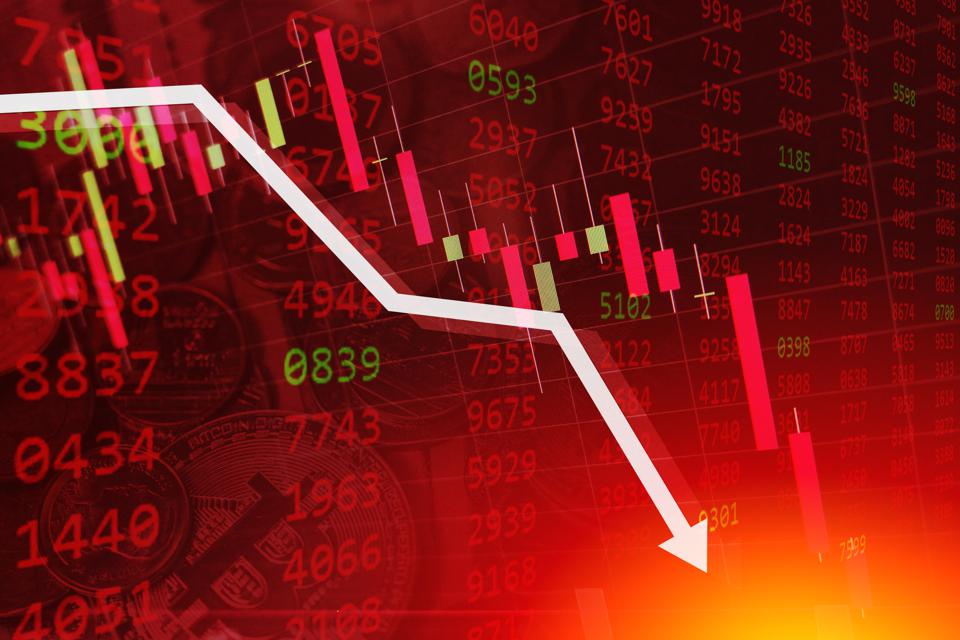Binance CEO Gave Investors Hope as Global Markets Crash
05.08.2024 14:03 1 min. read Alexander Stefanov
Today is a dark day for the global finanace as every market experienced a significan crash - from the U.S. and Japanese stock markets to crypto.
According to financial analysts, fears of a global recession have increased after the dramatic drop in the value of stock markets by $2.9 trillion. Japanese stocks posted their biggest losses since October 1987, extending last week’s sell-off.
Bitcoin led the crypto market decline with 16% and briefly went below $50,000 in the last 24 hours, while Ethereum plummeted over 23% and at the time of writing is trading at $2,230. According to CoinMarketCap, the total market cap is down 11%. At this point it stands at $1.84 trillion.
Over the past 24 hours, over $1 billion worth of crypto futures were liquidated as the market decline intensified on Sunday and continued into Monday.
The crypto market saw a significant drop in value as investors continued to abandon high-risk assets.
Richard Teng, the CEO of the world’s largest cryptocurrency exchange Binance shared some positive insight into the current downturn and gave investors hope.
He stated that the recent sharp drops in crypto and equity prices are influenced by macroeconomic factors and that they do not believe it’s indicative of a long-term negative trend.
Teng added that with potential Fed rate cuts and geopolitical volatility, there’s still significant potential for market fluctuations.
-
1
Trump Imposes 50% Tariff on Brazil: Political Tensions and Censorship at the Center
10.07.2025 7:00 2 min. read -
2
Key Crypto Events to Watch in the Next Months
20.07.2025 22:00 2 min. read -
3
USA Imposes Tariffs on Multiple Countries: How the Crypto Market Could React
08.07.2025 8:30 2 min. read -
4
UAE Regulators Dismiss Toncoin Residency Rumors
07.07.2025 11:12 2 min. read -
5
Ripple Selects BNY Mellon as Custodian for RLUSD Stablecoin Reserves
09.07.2025 15:28 2 min. read
Two Upcoming Decisions Could Shake Crypto Markets This Week
The final days of July could bring critical developments that reshape investor sentiment and influence the next leg of the crypto market’s trend.
Winklevoss Slams JPMorgan for Blocking Gemini’s Banking Access
Tyler Winklevoss, co-founder of crypto exchange Gemini, has accused JPMorgan of retaliating against the platform by freezing its effort to restore banking services.
Robert Kiyosaki Warns: ETFs Aren’t The Real Thing
Renowned author and financial educator Robert Kiyosaki has issued a word of caution to everyday investors relying too heavily on exchange-traded funds (ETFs).
Bitwise CIO: The Four-Year Crypto Cycle is Breaking Down
The classic four-year crypto market cycle—long driven by Bitcoin halvings and boom-bust investor behavior—is losing relevance, according to Bitwise CIO Matt Hougan.
-
1
Trump Imposes 50% Tariff on Brazil: Political Tensions and Censorship at the Center
10.07.2025 7:00 2 min. read -
2
Key Crypto Events to Watch in the Next Months
20.07.2025 22:00 2 min. read -
3
USA Imposes Tariffs on Multiple Countries: How the Crypto Market Could React
08.07.2025 8:30 2 min. read -
4
UAE Regulators Dismiss Toncoin Residency Rumors
07.07.2025 11:12 2 min. read -
5
Ripple Selects BNY Mellon as Custodian for RLUSD Stablecoin Reserves
09.07.2025 15:28 2 min. read


